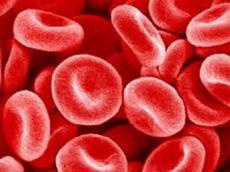|
|
TODAY.AZ / Weird / Interesting
Super drug found to fight against leukemia
25 September 2012 [18:05] - TODAY.AZ
 A group of Trinity researchers have announced details of a novel treatment for leukemia. The drug, called PBOX-15, works by causing leukemia cells to die. The new research is particularly significant because the drug appears to be effective on cancerous cells that are resistant to fludarabine, the currently-used treatment.
A group of Trinity researchers have announced details of a novel treatment for leukemia. The drug, called PBOX-15, works by causing leukemia cells to die. The new research is particularly significant because the drug appears to be effective on cancerous cells that are resistant to fludarabine, the currently-used treatment.The research was published in the journal Cancer Research on November 1, and was co-authored by Dr. Tony McElligott, a senior Research Fellow in the laboratory of Professor Mark Lawler in the School of Medicine, Trinity College Dublin.
PBOX-15 works by disrupting microtubules, which are key components of the internal structure or skeleton of the cancerous cells. This causes the cell to arrest its cycle of growth and subsequently induces apoptosis, or cell death, which is a normal process of healthy cells. Defects in apoptotic mechanisms are believed to be a primary cause of chronic lymphocytic leukemia (CLL), the type of leukemia that this drug targets.
The research is significant for a number of reasons. Firstly, PBOX-15 was effective on cells with poor prognostic markers, which are molecular indicators of aggressive disease. In the journal article, the authors write that the clinical course of CLL varies in patients, “with some patients displaying stable disease, which often requires no treatment other than ‘watchful waiting,’ whereas other patients have aggressive disease necessitating early intervention.”
URL: http://www.today.az/news/interesting/112887.html
 Print version
Print version
Views: 1716
Connect with us. Get latest news and updates.
See Also
- 19 February 2025 [22:20]
Visa and Mastercard can return to Russia, but with restrictions - 05 February 2025 [19:41]
Japan plans to negotiate with Trump to increase LNG imports from United States - 23 January 2025 [23:20]
Dubai once again named cleanest city in the world - 06 December 2024 [22:20]
Are scented candles harmful to health? - 23 November 2024 [14:11]
Magnitude 4.5 earthquake hits Azerbaijan's Lachin - 20 November 2024 [23:30]
Launch vehicle with prototype of Starship made its sixth test flight - 27 October 2024 [09:00]
Fuel prices expected to rise in Sweden - 24 October 2024 [19:14]
Turkiye strikes terror targets in Iraq and Syria - 23 October 2024 [23:46]
Kazakhstan supplied almost entire volume of oil planned for 2024 to Germany in 9 months - 23 October 2024 [22:17]
Taiwan reported passage of Chinese Navy aircraft carrier near island
Most Popular
 What von der Leyen doesn't know about. Or doesn't want to know
What von der Leyen doesn't know about. Or doesn't want to know
 Culture Minister meets with Kyrgyz counterpart in Bishkek
Culture Minister meets with Kyrgyz counterpart in Bishkek
 Trump sees hope for Ukraine-Russia deal, analysts remain skeptical
Trump sees hope for Ukraine-Russia deal, analysts remain skeptical
 Leyla Aliyeva visits school for visually impaired in Hanoi
Leyla Aliyeva visits school for visually impaired in Hanoi
 Pakistani PM hails Lahore-Baku direct flights as key milestone
Pakistani PM hails Lahore-Baku direct flights as key milestone
 Baku to Host Second Turkic Trade and Investment Forum in June
Baku to Host Second Turkic Trade and Investment Forum in June
 Baku court resumes trial of Armenian-origin individuals accused of war crimes
Baku court resumes trial of Armenian-origin individuals accused of war crimes
